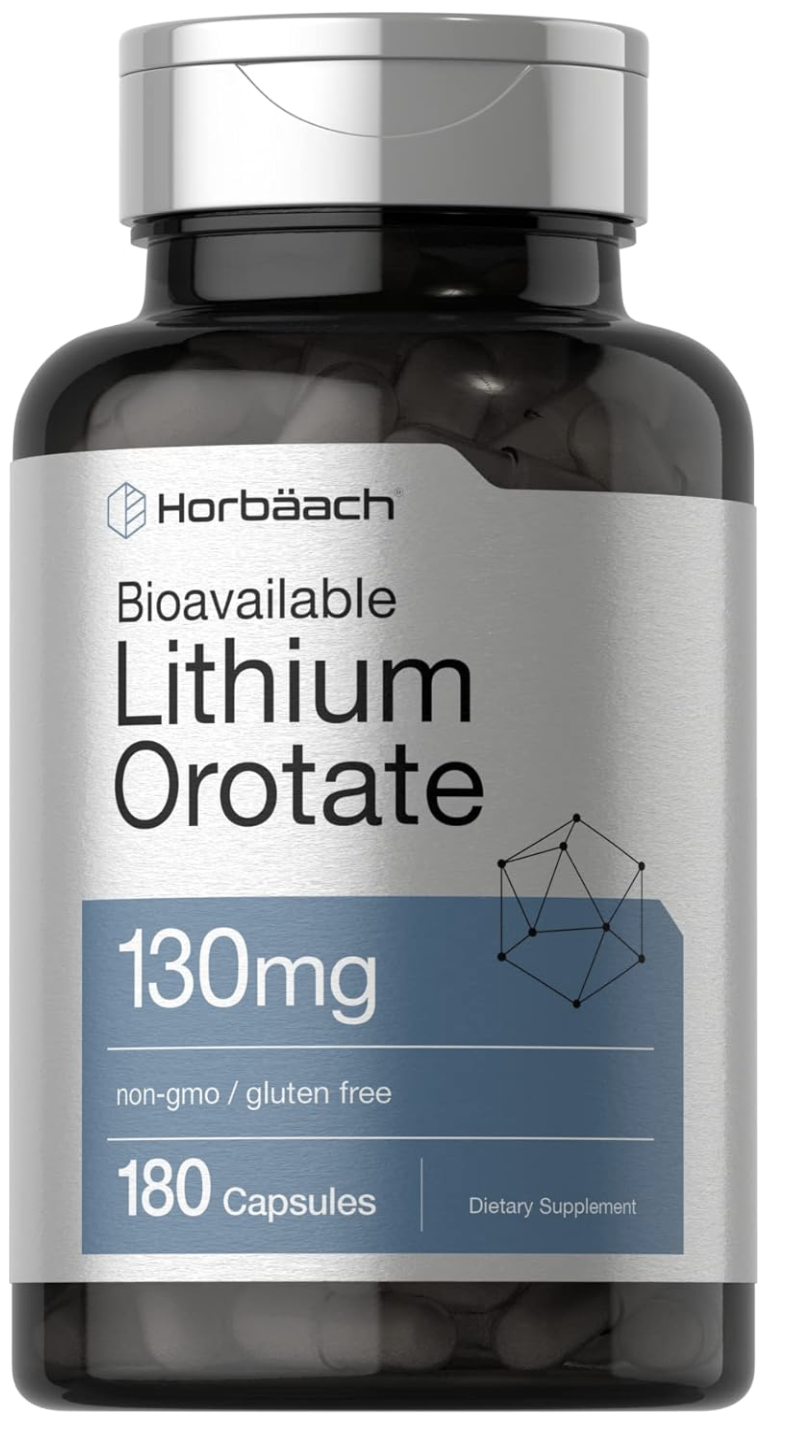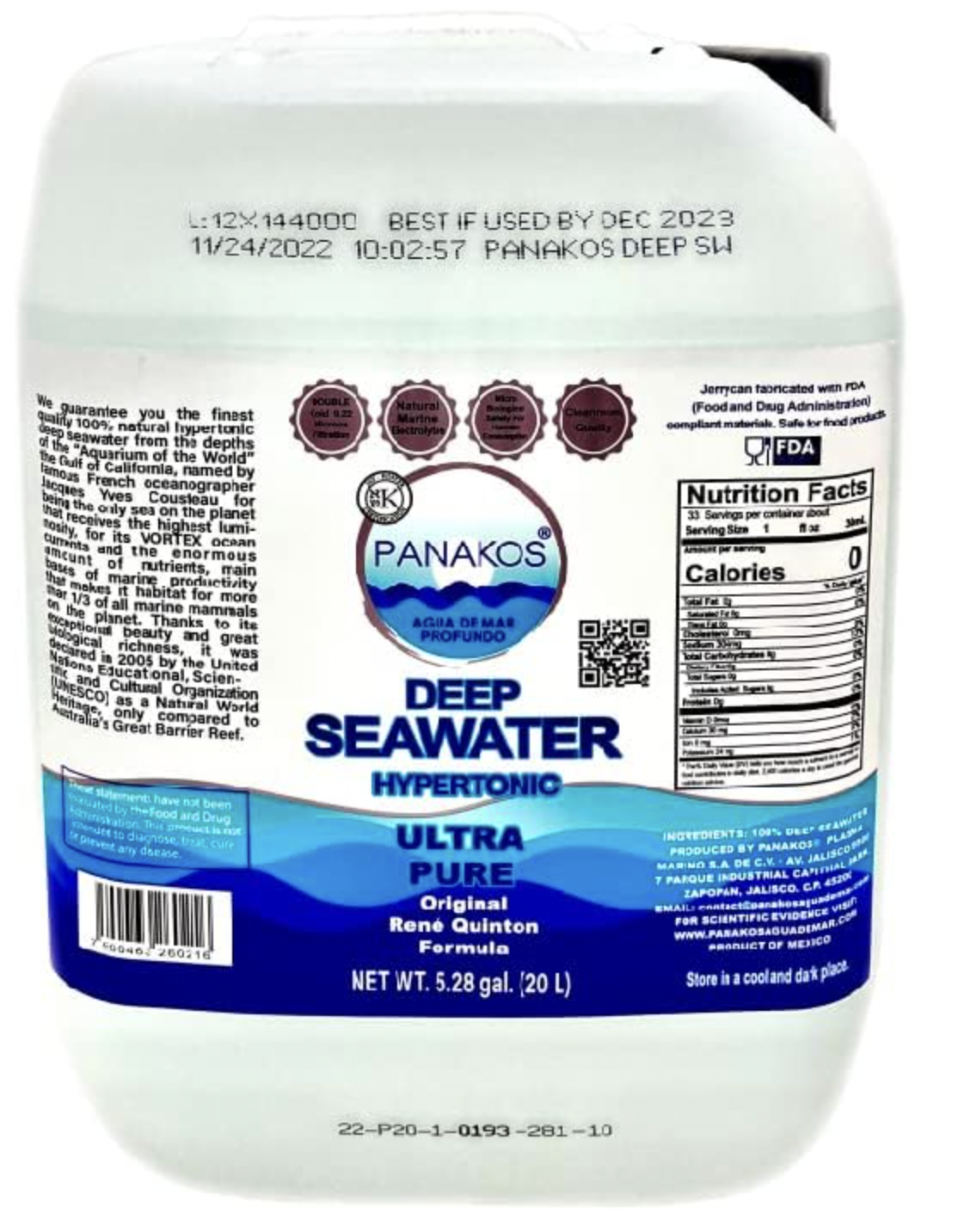 Why You Need Trace Minerals
Why You Need Trace Minerals
Scientists estimate that about 90% of Americans have a trace mineral imbalance or deficiency. This is a serious problem because every nerve in your body, and every organ, relies on trace minerals, which are also known as “electrolytes” or sometimes “trace elements”. Trace minerals generate minute electrical impulses that ultimately animate our bodies. Every muscle in the body, including the heart, depends on these trace minerals to function as tiny magnets that generate electricity by crossing membranes. If you have a deficiency of one or more of these trace minerals, you may develop serious diseases like fibromyalgia or chronic fatigue syndrome, to name just two.
Because soils throughout the world are becoming more and more nutrient deficient as a result of modern farming practices, you may need to add a seawater supplement to your drinking water, change from table salt to Himalayan sea salt, or you may need to take shilajit as a trace mineral supplement in order to get the necessary trace minerals that your diet is lacking.
What is a trace mineral?
Trace minerals are mineral nutrients that are needed in tiny amounts in order for the body to function normally. Minerals are elements that are typically most useful to the human body when they are ingested in the form of a salt. Salts are elements that have paired up in ionic bonds that are essentially magnetic pairs. In electrolyte salts, the ions in the salt-mineral has a positive charge while the other ion in the pair has a negative charge. The magnetic nature of salts, which are made up of tiny elemental magnets known as “ions” in chemistry, make these substances easy to dissolve into water and therefore easy for the body to absorb and to use.Our bodies need trace minerals in order for us to be healthy. These trace minerals are derived from the earth. Sometimes the trace minerals are present in the soils such that fruits and vegetables can absorb them. Then, we eat trace minerals in our diets via our fruits and veggies. Sometimes the trace minerals are present in our water though most of the drinking water in the world has been filtered, out of necessity, which means that it likely has either no trace minerals / electrolytes or it has an imbalance of trace minerals / electrolytes.
Many of the soils in the world are depleted of natural trace minerals that would make our diets more nutrient-rich. The water that most of us drink is also low in trace minerals and electrolytes, but there are some supplements that can help us replace these essential nutrients. We’ll talk more about those nutrients below.
Trace minerals / electrolytes are technically inorganic. They’re these essential nutrients that are made up of rocks and earth, in a sense. They explain, in some ways, why and how our bodies emit electricity. Many of these trace minerals / electrolytes are elemental metals.
Below is a list of essential trace minerals. Note that these trace minerals are all found in shilajit:
- Potassium - Found in bananas, leafy greens, and potatoes, potassium regulates the heart beat and nerve signaling.
- Sodium - Sodium is found in pink salt and sea food as well as in table salt.
- Chlorine - Chlorine is one of the most prolific and essential electrolytes in the body. It can be found in Himalayan sea salt as well as in table salt.
- Calcium - Calcium regulates cellular function, bone health, and it is a component of enzymes and hormones. It is found primarily in dairy products, fish, and in leafy greens.
- Magnesium - Magnesium is another essential trace mineral that regulates our cellular function, the synthesis of DNA, and a wide array of biochemical reactions in the body. It’s found in leafy greens, and dark chocolate.
- Phosphorus - Phosphorus is used to produce energy, metabolize fat, and synthesize DNA. It’s found in eggs, dairy, and red meat.
- Iron - Iron is an essential trace mineral that’s needed for proper blood cell function, as well as for protein and enzyme synthesis. It’s found in spinach, legumes, and meats.
- Zinc - Zinc is required for proper immune system functioning, detoxification of the body, growth, development, and healing, as well as DNA synthesis. It’s found in oysters, red meat, legumes, and dairy products.
- Manganese - Manganese is needed for proper production of hormones and enzymes. It’s found in ginger, nuts, and black tea.
- Copper - Copper is necessary for an array of biochemical reactions in the body, proper blood cells functioning, and nutrient transport throughout the body. It’s found in leafy greens, organ meats, and shellfish.
- Iodine - Iodine is necessary for the synthesis of thyroid hormones and to maintain balanced metabolism levels. It is found in kelp, Himalayan sea salt, and eggs.
- Chromium - Chromium helps regulate the metabolism and blood sugar levels in the body. It’s found in asparagus, spices, and mushrooms.
- Molybdenum - Molybdenum is needed for enzyme production, proper metabolism, and detoxification of the body. It’s found in legumes, leafy greens, and garlic.
- Selenium - Selenium is needed for healthy thyroid function, reproduction and fertility, DNA synthesis, and good immune system function. It’s found in brazil nuts, sea food, and mushrooms.
- Cobalt - Cobalt is an important nutrient for red blood cells and for proper nerve cell function. It also activates certain enzymes in the body. Cobalt is found in meat, dairy products, and algae.
- Nickel - Nickel is found in all whole foods. It plays a role in fat metabolism, hormone activity, and the synthesis of urea.
- Boron - Boron is necessary for hormone activation, nutrient absorption, and bone regeneration. It’s found in legumes as well as in fresh fruits and veggies.
- Silicon - Silicon is necessary for collagen formation, toned muscles, and for good bone health. It’s found in beets, high fiber foods, and in legumes.
- Vanadium - Vanadium is necessary for cholesterol production, hormone function, and sugar metabolism. Vanadium is found in olives, parsley, and nuts.
- Lithium - Lithium is found in drinking water in some areas of the world. Lithium is necessary for a variety of biochemical reactions in the body, for the uptake of B complex vitamins, and for brain health.
- Germanium - Germanium is found in garlic, green tea, and in certain herbs. It may help enhance bile production and immune function.
- Rubidium - Rubidium is found in coffee, tea, asparagus, and raw fruits and vegetables. It has an alkalizing effect on the body that can be beneficial for cancer patients.
Trace minerals used to be abundant in fresh edible grains, fruits, and vegetables, but today, nutrient-depleted soil has led to widespread trace mineral deficiency in foods. Soils in the United States, in particular, have been depleted of its nutrients and their natural minerals by modern farming techniques and the use of synthetic fertilizers.

The AlivenHealthy Iodine Bible - Everything you need to know to get started taking iodine and more!
Trace Minerals and the Liver
Bile is a detoxifier. It helps in the excretion of material that the kidneys have not been able to excrete. Bile is produced by liver cells and it is mainly composed of the following elements:-
- Water
- Electrolytes
- Bile Acids
- Bile Salts
- Cholesterol
- Bile Pigment
- Bilirubin
- Phospholipids
- Other substances
Scientists have studied the presence of electrolytes in the liver and in bile, but they haven’t been able to pin down the precise function of electrolytes in bile. Scientists do know that the absorption of trace minerals takes place primarily in the small intestine where bile is secreted and then re-absorbed into entero-hepatic circulation. And scientists have also shown that it’s best when trace minerals are consumed in ionic form, or in other words, as a salt to ensure that the body can easily absorb them and use them.

Click here to buy Shilajit as a trace mineral supplement.
Micronutrient intake of electrolytes / trace minerals is essential for a healthy heart and cardiovascular system. Unfortunately, because of the high level of importance of electrolytes in the human heart, Big Pharma has seized on the opportunity to skew the facts and mislead the public in regard to electrolytes. Though doctors have been taught to tell their heart patients to eat a low-sodium diet, the fact is, scientific research on sodium levels and its effects on the heart are contradictory. High sodium intake, for example, is associated with high blood pressure, but in reality, some scientific studies indicate that high sodium levels are associated with all causes of death due to disease while about the same number of scientific studies show that low sodium levels also increase the risk of death from all types of disease. So while the AMA and Big Pharma have decided to teach new doctors that high sodium levels lead to death due to heart disease, the truth is, low sodium levels can also lead to death from a variety of causes.While the AMA and the medical curriculum that educates doctors focuses almost exclusively on the (supposed) role of high sodium levels in causing heart disease (despite the fact that scientific research has shown that low sodium levels are just as dangerous), studies have shown that potassium, magnesium, and calcium play a stronger role than sodium in controlling blood pressure and heart function. This is why its so much healthier to stop eating table salt, which contains sodium and chloride, and switch instead to Himalayan pink sea salt which contains a wide array of trace minerals including sodium and chloride, calcium, potassium, magnesium, and more not just a high dose of sodium and chloride by themselves.
Scientific studies into calcium levels have yielded similarly ambivalent results to sodium, but that makes sense given that most scientists are unaware of the role of vitamin K2 in transporting calcium to its proper location in the body for use. Calcium buildup in the blood vessels can lead to atherosclerosis, but calcium buildup in the blood vessels doesn’t happen if patients consume vitamin K2 or take a vitamin D3 / K2 supplement. Nonetheless, some scientists have summarized the data by saying that calcium supplementation is only beneficial for prevention of cardiovascular disease in people with a very low calcium intake.
Trace Minerals / Electrolytes and Mental Health
Studies have shown that in areas of the world where there is a slightly higher amount of natural lithium salts in the water supply, there are lower levels of suicide, homicide, violence, depression, and mental health issues in general. Low levels of lithium are found in sea water supplements as well as in Himalayan sea salt and shilajit, but some individuals with mood disorders might choose to take a higher dose of lithium orotate at 5-120 mg daily to ensure that they get the proper amount to address their mental health issues each day. Don’t confuse lithium orotate with the synthetic form of lithium as lithium carbonate or lithium chloride. Lithium orotate occurs in nature and it works fluently with the body to recharge cells the way lithium batteries can be used to recharge electrical devices. Lithium carbonate and lithium chloride, on the other hand were specifically developed by Big Pharma as patentable substances that DO NOT occur in nature. These two lithium salts are toxic to the body and can be dangerous at the wrong dose. They only exist because Big Pharma wanted to produce a patentable drug that would do something similar to what lithium orotate does naturally (without side effects) for human health. Click here to read more about how lithium orotate improves mental health.
Click here to buy Lithium Orotate.
Trace Minerals in Liver and Gallbladder Health
Bile is manufactured by liver cells (hepatocytes) and it is secreted into the bile canaliculi where it then travels into larger and larger ducts, eventually ending up in the first section of the small intestine (the duodenum). Some of the bile that’s manufactured in the liver ends up in the gallbladder for storage. The concentration of bile is determined by pressure in the liver ducts and the sphincter of Oddi. Bacteria in the small intestine convert bile acids into substances that can be reabsorbed and reused by the liver. Excess bile that is not used in digestion is reabsorbed by the final segment of the small intestine (the ileum) for transport back to the liver. The body secretes about 1 to 1.5L of bile daily. A proportion of bile is made up of electrolytes. After the bile is secreted into the duodenum, much of it is absorbed by the small intestine back into the bloodstream. Bile is then returned to the liver to go through the same cycle of secretion and absorption again. As such bile acids and bile components that are not excreted via a bowel movement, are recycled again and again in a process known as enterohepatic circulation.Trace Mineral / Electrolyte Composition of Bile
Electrolytes (also known as trace minerals or trace elements) are an important component in the makeup of bile. The electrolyte composition of bile includes:- 145 mEq/L sodium
- 5 mEq/L potassium
- 110 mEq/L chloride
- 40 mEq/L bicarbonate
Some scientists have speculated that certain electrolytes may be absorbed primarily through bile and the entero-hepatic circulation.
Electrolyte Balance in Gastrointestinal Disease
When patients have a reduced dietary intake of trace minerals / electrolytes combined with gastric secretions that are lost due to gastrointestinal disease, a downward spiral ensues. If gastric contents are lost as a result of vomiting or diarrhea, chloride is often the first electrolyte that’s lost in excessive quantities, but loss of sodium or potassium is also common. Stomach acids, for example, are composed of:- Hydrochloric Acid
- Potassium Chloride
- Sodium Chloride
Note that potassium, chloride, and sodium are all electrolytes.
Small bowel obstruction often leads to balanced losses of electrolytes wherein patients suffer from an all-around deficiency of trace minerals. The loss of trace minerals can lead to serious changes in pH levels. Diarrhea can cause the body to become excessively acidic. Potassium deficiency is common in those with diarrhea. Potassium is an important heart-rhythm regulator, so it’s important to prioritize the replacement of potassium in individuals with chronic or prolonged diarrhea.
When fat excretion is increased to abnormal levels (steatorrhea) in the stools such that the patient experiences fat malabsorption, the loss of sodium, potassium, and chloride, as well as the loss of calcium and phosphorus can be extreme. Fat malabsorption and excretion commonly occurs in individuals with pancreatic insufficiency, celiac disease, or tropical sprue.
In individuals with chronic stomach ulcers, calcium levels can go too high when patients ingest large quantities of milk or over-the-counter calcium-containing drugs in order to alleviate symptoms of heartburn or GERD. The high calcium levels can then lead to the development of kidney stones.
 Click here to subscribe to the Living Database!
Click here to subscribe to the Living Database!
3 Easy Ways to Supplement with Trace Minerals
Supplementing with trace minerals have a generally alkalizing effect on the body which is vital in the treatment of a number of serious diseases including cancer. Shilajit is also an important part of protocols designed to cure HIV and other autoimmune diseases.Shilajit
Shilajit is an Ayurvedic medicine that's harvested in the Himalayan mountains as a black tar-like substance that's rich in trace minerals. Shilajit used to cure autoimmune disease as well as other ailments that are caused by trace mineral deficiency.
Click here to buy Shilajit as a trace mineral supplement.
Seawater Supplements
Seawater supplements are administered in drinking water. A lot of the soils in the world have been depleted by modern farming practices, but the trace minerals that would normally create nutrient-rich soils that would lead to nutrient-rich vegetables and fruits, flow into the ocean from the rivers and streams. The oceans contain proper proportions of trace minerals and since much of the water supply today must be filtered and left bereft of trace minerals and electrolytes, sea water supplements can be used to replenish them in drinking water. Add 1 teaspoon of sea water supplement to every 8 ounce glass of drinking water throughout the day for best results. One liter of sea water supplement typically lasts about 1 month for 2 people.
Click here to buy Panakos Sea Water Supplement.
Himalayan Sea Salt
Replacing your table salt with Himalayan sea salt will increase your trace mineral consumption considerably. Himalayan sea salt contains balanced levels of trace minerals, though it may not contain the same range of trace minerals as the supplements noted above. Nonetheless, replacing your table salt with Himalayan sea salt can help your rebalance your trace mineral levels in the body.
Click here to buy Himalayan Sea Salt.

Resources:








